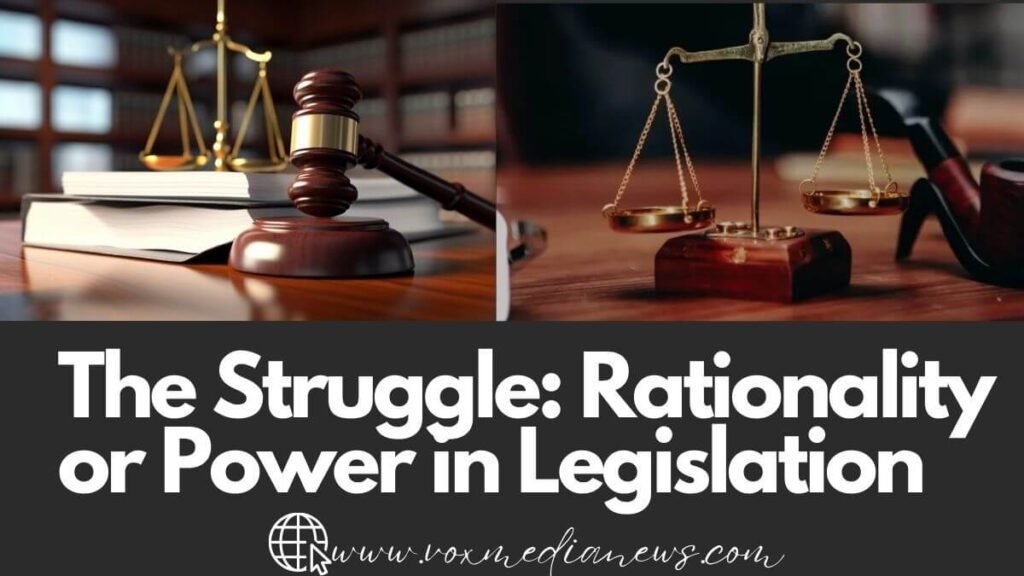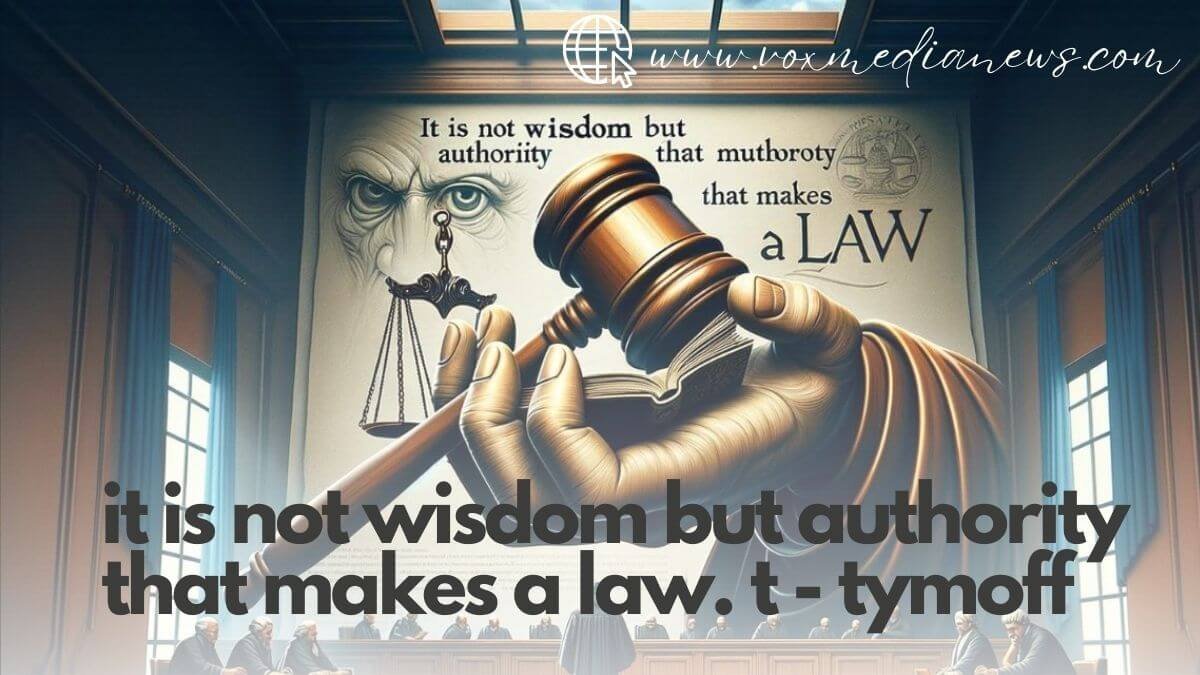In the complex world of legal systems, a provocative idea challenges our understanding of how laws are created and enforce. The statement “it is not wisdom but authority that makes a law. t – tymoff” strikes at the heart of this debate. Let’s dive deep into this concept and explore its far-reaching implications for our society.
Overview Table
| Aspect | Description |
| Key Concept | Authority, not wisdom, creates laws |
| Historical Perspective | Supported by philosophers like Thomas Hobbes |
| Impact | Shapes the foundation of legal systems worldwide |
| Challenges | Balancing authority with wisdom in lawmaking |
| Case Studies | Jim Crow laws, Sodomy laws, War on Drugs |
| Future Directions | Increasing public participation, diverse representation |
The Power Behind the Law
At its core, this statement “it is not wisdom but authority that makes a law. t – tymoff” suggests that the force of authority, rather than the wisdom of reasoning, is the primary driver in creating and enforcing laws. This idea isn’t new. Thomas Hobbes a 17th-century English philosopher for instance asserted that it was unacceptable to distinguish between good and bad laws since laws are made by sovereign authorities and thus take their legitimacy from the authorities that make them.
In contemporary democracies, legitimacy is derived from the constitution or charter or the will of the people. This authority enables governments to set and implement laws that regulate the conduct of all people in the society. Without this authority base, the whole legal system framework could be undermined.
The Numbers Don’t Lie: Power in Practice
The United States’ federal government employs over 300,000 criminally enforceable regulations.
- Today, at least 7 out of 10 people live under authoritarian or hybrid regimes, the laws of which are more often a desire of those who are governing than the achievements of reasonableness.
- In a Gallup poll taken in January 2021, about 36% of the respondents expressed a “great deal ‘or ‘quite a lot” of confidence in the criminal justice systems, illustrating the chasm between authority and received knowledge of law.
The Struggle: Rationality or Power in Legislation

Laws should instead be the perfect mix between power and knowledge.
1. Political Pressure: Members of a given legislative body are always under pressure from different stakeholders. A survey conducted by the Center for Responsive Politics revealed that in 2020, lobbyists used about $3.49 billion in an effort to lobby U.S. legislation.
2. Short-term Focus: The mean length of service of a U.S. Representative is 8.9 years, which often results in the practitioners putting more emphasis on the short-term decisions instead of the long-term strategies.
3. Complexity of Issues: Contemporary legislators are face with more sophisticate problems. For example, such regulation inevitably links to a field in which only 37% of its respondents said they are inform about, according to the Pew Research study.
Case Studies: Authority overrides the Wisdom
1. Jim Crow Laws: These laws were enact between 1870 and 1960 and rated racial segregation of millions of African Americans in the Southern United States.
2. Sodomy Laws: Until 2003, fourteen U. S states prohibited same sex relations and this affected 4-10 percent of the population.
3. War on Drugs: This policy since 1970 has seen millions of people locked up and minority groups especially blacks bear the brunt. African Americans are 3. Black students are 73 times more likely to be arrest for marijuana possession than whites despite the fact that both races consume marijuana at the same rate.
Balancing Act: Implementing Wisdom in the Process of Enacting Codes
1. Increased Public Participation: Some countries such as Estonia have adopted e-democracy where the public can directly engage in the lawmaking process. In 2020, 46. Internet voting was use by 7% of the eligible voters in Estonia.
2. Diverse Representation: The composition of the current legislature can be made more diverse and therefore can possess a wider option in terms of the perspectives that it holds. However, the U. S. Congress in 2021 was still predominantly male where only 27% of congress is female and 23% are non-white, though the general population is 50/50. 8% female and 40% of color.
3. Evidence-Based Policymaking: Adhering to high research standards in assessing impacts can go a long way in preventing laws from being made arbitrarily. The European Union has set this as a priority, conducting more than a thousand impact assessments between 2003 and 2019.
Conclusion: The Path Forward
Therefore, the statement “it is not wisdom but authority that makes a law. t – tymoff” helps to highlight the issues of power relations in our legal systems. Still, authority plays the decisive role in the creation and application of laws, though there is already a shift to introduce wisdom into this process.
In other words, through more involvement of the people, diversification of legislative bodies, and utilization of scientific knowledge and data in policy formation. We might strive for the state of affairs in which legal authority is complement by legal enlightenment. It is the balance that allows coming up with laws that not only conform to the letter of the law. But which are also just, fair and beneficial to society.
Also Read About
